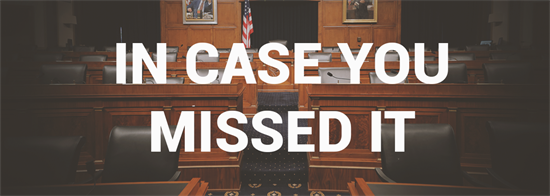ICYMI: The Swampland RepublicansGOP Senators balk at even modest fixes in federal flood insurance.
Washington,
January 17, 2018
By the Editorial Board Texas, Florida and especially Puerto Rico are rebuilding after last year’s hurricanes, and for once Washington’s response includes more than a cash infusion. The House recently passed improvements to a flood insurance program that is under water financially, and the question is whether this progress will be stopped by parochial Senate Republicans. The budget deal that passed Congress in December extended through Jan. 19 the National Flood Insurance Program that guarantees more than $1 trillion across five million policies. Last fall Congress voted to forgive $16 billion of the flood program’s more than $24 billion in debt. The program does not collect in premiums what it must pay in claims and runs a $1.4 billion annual shortfall. Much of this is due to insuring properties that are inundated again and again. Fewer than 2% of the program’s policies are “repetitive loss” structures, but these money pits account for nearly a quarter of claims paid. Many of the risky properties receive explicit discounts, which encourages folks to live in flood-prone areas. The House passed a reauthorization of the program that aims to correct some of this dysfunction, 237-189, and 15 Democrats voted yes while 14 Republicans voted no. This can be explained in part by geography: Several of the GOP defectors were from coastal outposts like Florida. These bills are sensible compromises that any Republican should support. They require the program to raise collections for a reserve fund so in theory it doesn’t have to raid Treasury after the next hurricane. The bills would also improve flood mapping. One move essentially says: Certain properties that receive a discount and flood again will see premiums rise over time toward market rates—if these owners decline to use government money to mitigate flood risks. This won’t affect the overwhelming majority of policy holders. Another important measure allows private insurers more leeway to sell flood insurance. The complaints that private competitors will pick off the least risky properties and sink the flood program are exaggerated: Insurers make money with diversified portfolios. Yet even these modest improvements face storm winds in the Senate. The biggest obstacle is the Louisiana delegation, and no wonder: The Pelican State has claimed $13 billion more in payouts than what policy holders have paid in premiums, and the state is home to thousands of repeat flood offenders. Louisiana politicians assume that Congress will always bail out the program, and so far they’ve been right. But Louisiana Senators Bill Cassidy and John Kennedy are not the only trouble spots. Another could be Florida Senator Marco Rubio, who teamed up with Senator Elizabeth Warren (D., Cape Cod) on a flood insurance idea that would suspend interest payments on the program’s debt. Then there’s Mike Rounds of South Dakota’s floodplains. Both Messrs. Kennedy and Rounds are on the Senate Banking Committee that oversees the flood program and needs every GOP vote to advance legislation. The larger question is why government underwrites flood insurance when consumers privately insure against car accidents, fires and other events that damage property. Congress will spend tens of billions in hurricane relief, and no doubt it’s needed. But if Republicans can’t impose even the most modest changes to a drowning federal program, one wonders what the point of a majority is. ### |



